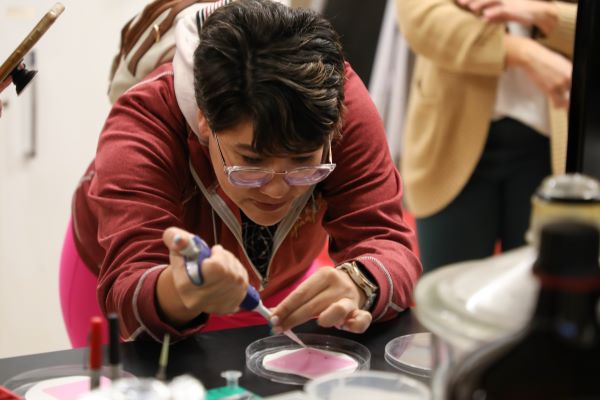Journal article recognizes impact of Montana Tech, K-12 partnership that brings STEM to thousands of Montana students

A new article published in the February 2024 edition of the Journal of STEM Research highlights the success of a multiyear project that allows rural K-12 teachers and students to conduct bacteriophage research with scientists at Montana Technological University.
“Bringing Research into the Classroom: Bacteriophage Discovery Connecting University Scientists, Students, and Faculty to Rural K-12 Teachers, Students, and Administrators,” is authored by Dr. Marisa Pedulla, professor of biological sciences, Rayelynn Brandl, executive director of the Clark Fork Watershed Education Program (CFWEP), and Christina Pavlovich, director of programs and evaluation at CFWEP.
The program was called Bringing Research into the Classroom (BRIC), and ran from 2014-2019 through a $1.2 million National Institutes of Health Science Education Partnership Award (NIH SEPA). Over 9,000 Montana K-12 students were taught in their schools’ classrooms how to search for bacteriophages, which are viruses that infect bacteria. Their teachers were mentored through summer learning opportunities at Montana Tech.
The article notes that one of the major goals of the project was to increase the number of students entering STEM-based careers. There were 22 students in the program that went on to complete in-depth, paid summer research internships. One participant went on to intern at the NIH Rocky Mountain Laboratory in the summer of 2023. Another began her graduate studies in molecular and cellular biology in the Fall of 2023.
The article suggests other institutions could replicate the BRIC program to increase STEM participation among high school students. The legacy of the BRIC program has continued at Montana Tech since 2019 in another 5-year NIH SEPA project titled, Phages Helping Acquire Genuine Experiences in Science (PHAGES).